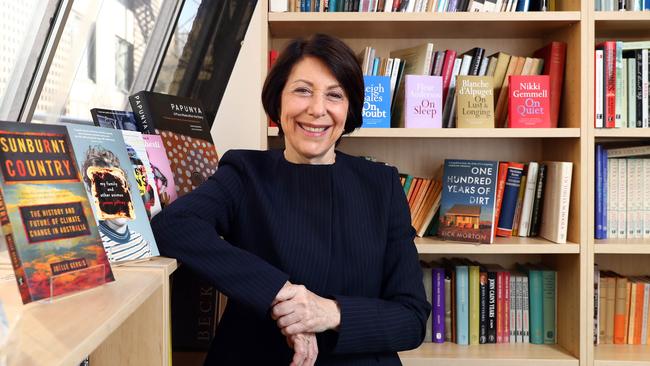Q&A: Louise Adler, CEO, Melbourne University Press
Louise Adler, CEO of Melbourne University Publishing, has a reputation as a formidable negotiator.

The verb to be “Adlerised” has entered the lexicon of at least some writers worn down by Louise Adler’s determination to sign them up to a deal. Here she talks about her technique.
What does it take to get a good deal?
I would say passion, energy and tenacity. And chemistry. There’s got to be rapport. It’s not always that the largest cheque wins the day in the book industry and often it’s to do with
a personal relationship that’s imagined. The Australian publishing industry is a $2.2 billion industry, but at the same time it is quite a small pond. And so it’s highly competitive, it’s fearfully fought turf, because the figures in our business are tragic. Only four books sold more than 100,000 copies last year. There were 65,500 ISBNs created in Australia last year – 61,500 sold less than 5000 copies. These are character-building numbers. So we are asking a writer to spend a couple of years writing a book that will be unlikely to sell more than 5000 copies.
Can you learn to be a good deal-maker?
I think there’s something intuitive in it. You really have to want it. You have to be hungry. You have to have drive. I have to admit that I have been known to get a headache if we don’t get a book we have been chasing. Max [Gillies, Adler’s actor husband] will say quietly, ‘Looks like it’s going to be a bad weekend’ if we didn’t get a book we were pursuing. There’s such a personal investment in it. You’re either driven or you’re not. I read deal-making through the prism of commissioning, having an idea and saying, ‘Who can do it? Who can write this book?’ The instinct to commission, I think, goes with being a good shopper. I’m
a shopper. I don’t even have to be shopping for myself, I can shop for anyone. As well,
I’m a yes person not a no person. So I’m an enthusiast, and if you’re not an enthusiast
the book business is not the right place for you.
‘If it’s about you, you are not going to prevail.’
Have you met people who you think are good at making deals?
I wasn’t close to him, but Bernie Brookes, who ran Myer for a long time, was fascinating talking about the retail sector. Victorian premiers Steve Bracks and John Brumby
were very strong managerialist leaders. Their success came from being able to persuade us that their agenda deserved our support.
Do you have to remove your ego in order to do a good deal?
One hundred per cent. If it’s about you, you are not going to prevail. You’ve got to be clear about what’s in it for your business, but equally importantly you need to think through what will ensure this person, this company, this business is persuaded by your pitch. You’ve got to leave your ego outside the door. If you think you’re the cleverest person in the room, the deal doesn’t get done. If you think it’s all about you, I don’t think it works. It’s got to be about persuading people that the deal is in their interest. It’s about confidence, the genuine conviction that there’s something that resonates between you and the person you’re negotiating with. It’s all about the relationship.
Can you nominate the best deal you’ve ever done?
The Latham Diaries [by former leader of the opposition Mark Latham, published in 2005] was terrifically successful. Paul Kelly [editor-at-large at The Australian, whose books The March of Patriots and Triumph and Demise were published in 2009 and 2014 respectively]. Publishing Paul Kelly was reputationally beneficial to MUP. Mick Gatto – despite the distaste of some people – was very commercially successful. [Gatto’s memoir, written with Tom Noble, was called I, Mick Gatto and was published in 2009.] And then there are the books that surprised people. Publishing Battlelines, the Tony Abbott book, in 2009 was interesting. The book became the prism through which the media read Tony Abbott’s career thereafter. So that’s where books have more significance than one might think, even sometimes in inverse proportion to their sales. Another book that I was proud of was Mark Colvin’s [Light and Shadow: Memoirs of a spy’s son, 2016]. I think it has sold more than 25,000 copies since his far-too-early death. I pursued him for five years before he finally agreed to write it.
What about the deal that you didn’t make, the one that got away?
I would’ve adored to publish Paul Keating. I did have discussions with him and wanted him to write his memoirs but I didn’t succeed in persuading him, which will always hurt a little. I just think he’s a superb mind and a very entertaining, rich character who has had an immense impact on our society, on modern Australia.



